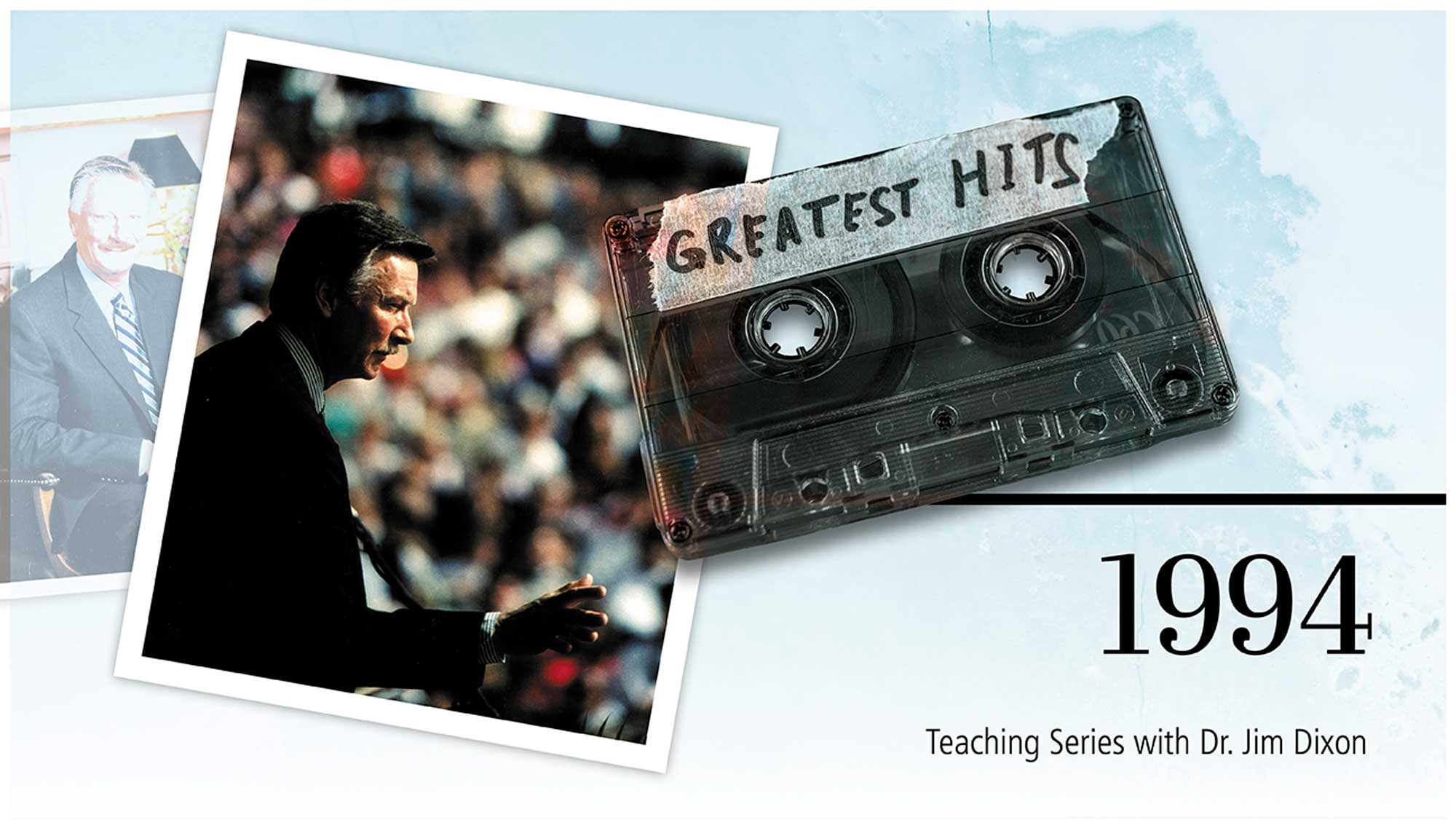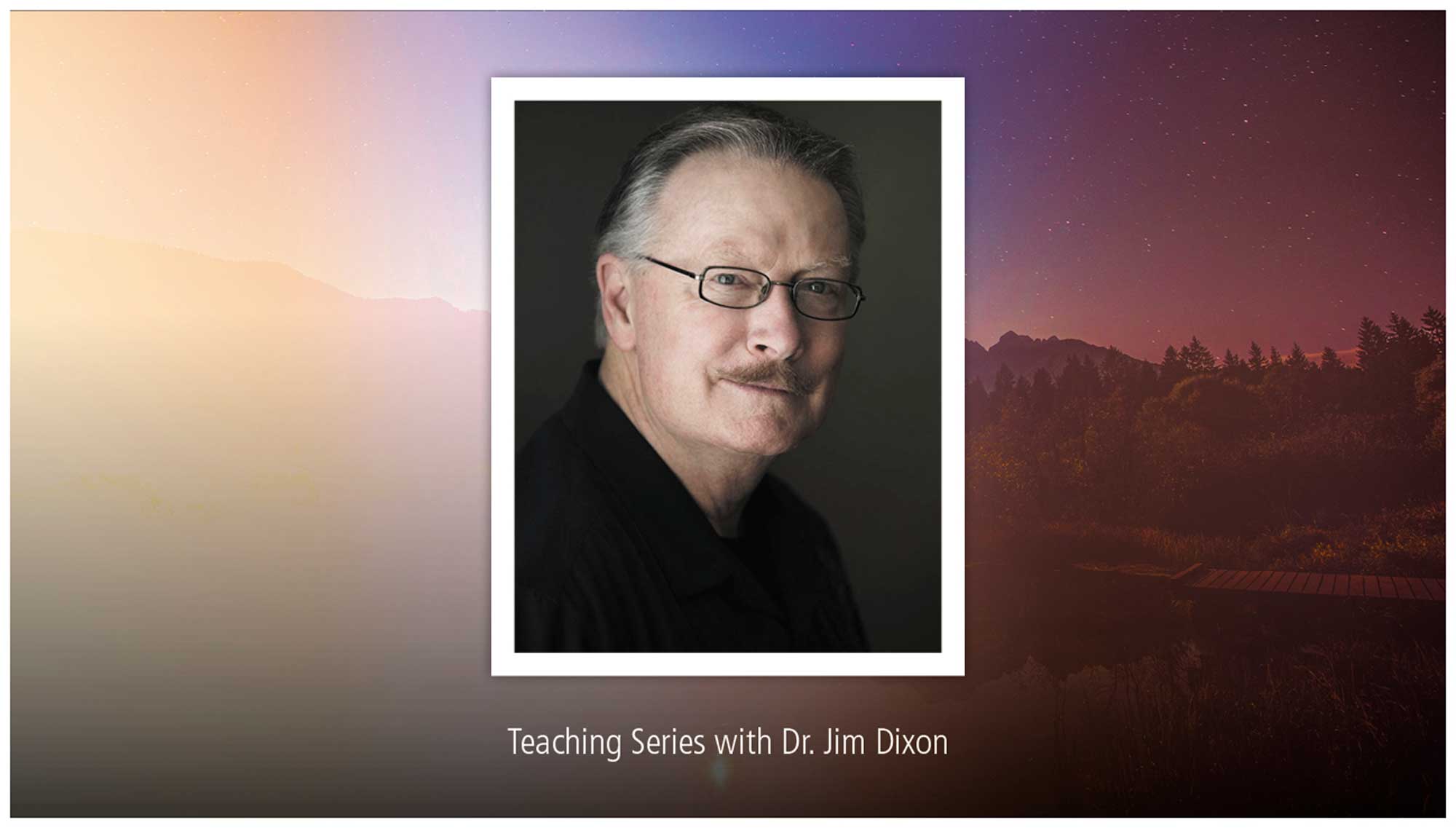COMMUNION SUNDAY
DR. JIM DIXON
HEBREWS 11:1-15
FEBRUARY 13, 1994
The story of Chuck Frye is told by James Dobson in his most recent book called When God Doesn’t Make Sense. Chuck Frye was a bright young man, academically gifted and highly motivated, and he graduated from high school at the top of his class. He went to college and he received his Bachelor of Science degree. He then entered medical school. He went to the University of Arizona School of Medicine, and it was then and it was there that he received the call of God, that he felt led of God to devote his life to full-time Christian service. And he resolved that he would not be a doctor who would minister in a lucrative environment with high-tech medicine, but rather he would be a doctor in a foreign country, a medical missionary. He’d be a doctor who ministered to the poorest of the poor, minister to the down and out.
Shortly after that decision, Chuck began to feel weak. He began to feel ill. And so he went to the doctor and they ran some tests and they discovered that he had acute leukemia. That was in May. In November, Chuck Frye died, and his parents were among many people who asked the question, “Why? Why was this young man cut down in the prime of life? Why was his life not spared? He loved Jesus Christ with all of his heart and only longed to serve him. Why were the agonizing prayers of godly family members and faithful friends seemingly not answered?” Thousands of young doctors complete their education every year. Most of them are properly motivated, but a very few, only a very few are willing to become medical missionaries. Only a very few are willing to minister to the poorest of the poor. Only a very few are willing to minister in another country amongst the down and out.
Think of the thousands of people that Chuck Frye would’ve helped if he had lived. Think of the people who are in utter despair, the people who feel like their life is hopeless. Think of the people riddled with disease in other impoverished nations. Think of the people that Chuck Frye could have helped. And he would’ve helped them, not simply physically, but he would’ve sought to minister to them spiritually as well. He said he longed to take the gospel of Jesus Christ to the unbelieving. And think of Chuck Frye’s wife Karen, who was engaged to Chuck in March of that year. He died six weeks later. She discovered that Chuck had acute leukemia and she went ahead and married him anyway, and she really believed that Chuck would be healed, but she only had four months with him before he died. And to this day, she asks the question, “Why? Why was his life not spared? Why was his life taken?” And I don’t think there’s an answer to that, not an answer that we will receive in this age of the world. Like James Dobson says in his book, theologians can debate this for 50 years and they will not come up with an answer that satisfies the questions of man.
It’s an enigma, it’s a puzzle. And you see, we live in a world where there are a lot of enigmas. We live in a world where there are lots of puzzles. The Bible says, “When I was a child, I thought as a child, I spoke as a child, I reasoned as a child. When I became a man, I put away childish things. Even so, now we see in a mirror dimly; then we will see face to face. Now we know in part; then we will know fully, even as we have been fully known. We see a mirror dimly in this age of the world. Even as Christians, the Bible says, we see as in a mirror dimly. And the Greek word there, “aínigma,” is the word from which we get the English word enigma. You see, in this life we see enigmatically. Life is something of a puzzle for us.
Until we see face to face, until we know fully as we have been fully known in this life, there is the enigma, there are the things that we do not understand. Of course, some of the enigmas of life, some of the puzzles in life are simply curiosities. Some of the puzzles of life just aren’t really that important.
A few weeks ago, Barb and I went out to dinner and went to a Chinese food place. And as we were sitting down and kind of getting comfortable, Barb said, “You know, it’s amazing the number of beautiful women who are attracted to ugly guys.” I said, “Well, are you thinking of us?” And she said, “No,” and she pointed to the table across the way and there at the table, sure enough, there was this beautiful woman and she looked like she could be a model. And she’s with a guy who was not particularly good looking. I mean, he had long hair and that wasn’t the problem, but it wasn’t well kept. It looked kind of grody and grungy and he had a face to match. He really did. And yet she was holding his hands. She was holding his hand, and you could tell that she really loved him. And that is a kind of an enigma, isn’t it? I mean, that’s a kind of puzzle, but it’s little more than a curiosity.
There are lots of little enigmas like that in life. And that’s why David Feldman recently wrote a book called Imponderables. I mean, he deals in that book with certain curiosities, like why corn flakes and sugar frosted flakes (which are really just corn flakes with sugar on them) had the same number of calories per serving. Or why women open their mouths when putting mascara on their eyes. He deals with enigmas like that, little imponderables, you know. And amazingly, in his book, he’s able to solve a lot of those puzzles, able to answer a lot of those questions. But he doesn’t deal with the big questions. He doesn’t deal with the big enigmas. He doesn’t deal with the big puzzles. He can’t answer why it is that evil people prosper. He can’t explain why the righteous suffer or why bad things happen to good people.
And the truth is, in this life, sometimes we will not understand, we’ll not be able to explain why. And yet in the midst of the enigma, in the midst of the puzzle, God calls us to faith. God wants us to be men and women of faith. I know most of you have heard of Job, and you’ve probably read his story in the Old Testament. Job was a relatively righteous man. The Bible says as much. The Bible tells us he was relatively righteous, and yet God allowed Satan to test him. Job went through unbelievable suffering. Job had three friends. They tried to help him understand why he was suffering. They tried to solve the puzzle. These three friends were Eliphaz the Temanite, Bildad the Shuhite, and Zophar the Naamathite—three friends who really needed three new names.
They basically say some good things. I mean, they say sometimes God uses suffering to grow us and to develop us and to make us better. And that’s true. And they say sometimes suffering is caused by our own sin. And that’s true. But they don’t really solve the question of why not in Job’s case. I mean, they basically say to Job, “Well, you must have sinned horribly, and you just need to repent because good things happen to good people and bad things happen to bad people. You must have done something pretty bad. Look at you, you’re suffering a lot. Your life’s a mess.”
And it wasn’t the answer. It didn’t solve the riddle, it didn’t solve the puzzle. It didn’t explain the enigma. And of course, finally God appears to Job. He speaks out of the whirlwind. And it’s fascinating that God does not make an effort to give an apologetic. He doesn’t give an apologetic for his actions or for his lack of actions. God doesn’t give a rational defense for human suffering. God simply says to Job, “I am sovereign. I am omnipotent. I’m omniscient.” God says, “I am God. I am God, believe in me. I am God, trust me.” And that’s what we’re left with. And you see, Job is at his best when he has faith, as in Job chapter one, when Job says, “Naked, I came from my mother’s womb, naked I shall return. The Lord gives and the Lord takes away. Blessed be the name of the Lord.”
Job said that after his children died, “The Lord gives and the Lord takes away. Blessed be the name of the Lord.” Faith in the midst of the enigma. And in Job 13, when Job said, “Though he slay me, yet will I trust in Him,” and Job 19, when Job says, “I know that my redeemer liveth.” Faith in the midst of the enigma, in the midst of the puzzle, that’s when Job is at his best. And God is looking for a people, men and women in this age, who in the midst of the riddle, in the midst of the puzzles of life, believe in him and have faith. God is looking for a people who will be faithful unto death.
Of course, tomorrow’s Valentine’s Day and Valentine’s Day is associated with romantic love.
And that’s kind of ironic because St. Valentine knew little of romantic love. St. Valentine was never married, and he never fell in love. But he knew a great deal about faith and he knew a great deal about suffering. He knew about faith in the midst of suffering. And you see, St. Valentine was imprisoned because he refused to worship Roman deities and he was ultimately beheaded, by order of Claudia II, Emperor of Rome. He was beheaded in the city of Rome, martyred for his faith. And you see, God is looking for people with faith who can say with Paul when life comes to an end, “I have fought the good fight. I’ve kept the faith. I’ve finished the race faith.” And of course, our faith that God calls us to is not a blind faith. It’s not a blind faith we see in a mirror dimly. We don’t see in a mirror blindly. God has revealed truth to us.
In the midst of the puzzle, in the midst of the mysteries, the enigmas of life, God has revealed truth. And you know, there’s a great word in the New Testament, the word “mysterion.” It’s the word for which we get the word mystery. When we think of a mystery, we think of truth hidden. We think of truth that is not known, truth that has not been revealed. But in the Greek world, in the biblical world, when they used the word mysterion, when they used the word mystery, they were referring to truth revealed, truth that could not be known by natural powers of human observation, truth that had been revealed supernaturally.
The Bible speaks of the gospel as the mysterion. The Bible speaks of the mystery of the gospel. The gospel is the truth revealed. You see, we have truth revealed in the midst of the enigma, in the midst of the puzzle. And the Bible itself, this book, this Word of God, this is mysterion, this is truth revealed in the midst of the enigma. Really, in the nominal Christian world, in the visible Christian community, there are two extremes. There are the liberals who deny the truth. They deny the truth revealed, they deny the gospel, they deny the Word of God. They view all of life as an enigma. It’s all a puzzle. There’s no black and white, there’s no moral absolutes. And the other extreme is there are the fundamentalists. And they deny the enigma, they deny the puzzle. They say that they know all things. They say that everything is black and white.
And you see, biblically, there is a balanced perspective that in this life there is an enigma. There is much that is confusing. And yet in the midst of it, we have the truth revealed. We have the truth of God’s word. We have the truth of the Gospel. And in that truth and in Christ himself, we place our faith, we place our trust. We come to communion this morning. And it is a reality. It is a fact that in the early church, one of the titles of communion was mysterion. Back in the fourth century, this was one of the most common titles for the Lord’s Supper. It was called the mysterion, the mystery, because in the Lord’s Supper we see the truth revealed, the truth that Christ died for us—the truth that Christ died for our sins and that through him we can find forgiveness and victory over death. The truth of the gospel.
As we come to this table this morning in the midst of life’s enigmas, whatever’s going on in your life, whatever you don’t understand, it’s a time to reaffirm your faith. Your faith in Christ, your faith in the mysterion, the faith in the truth revealed, the truth of the gospel. It’s a time to commit ourselves anew to Christ and to his kingdom and to thank him for his grace and mercy. It’s a time to look forward to the day when we will see him face to face and death will be no more. Neither will there be mourning nor crying nor pain anymore. We will see him face to face and we will be like him, for we will see him as he is. Let’s look to the Lord.




